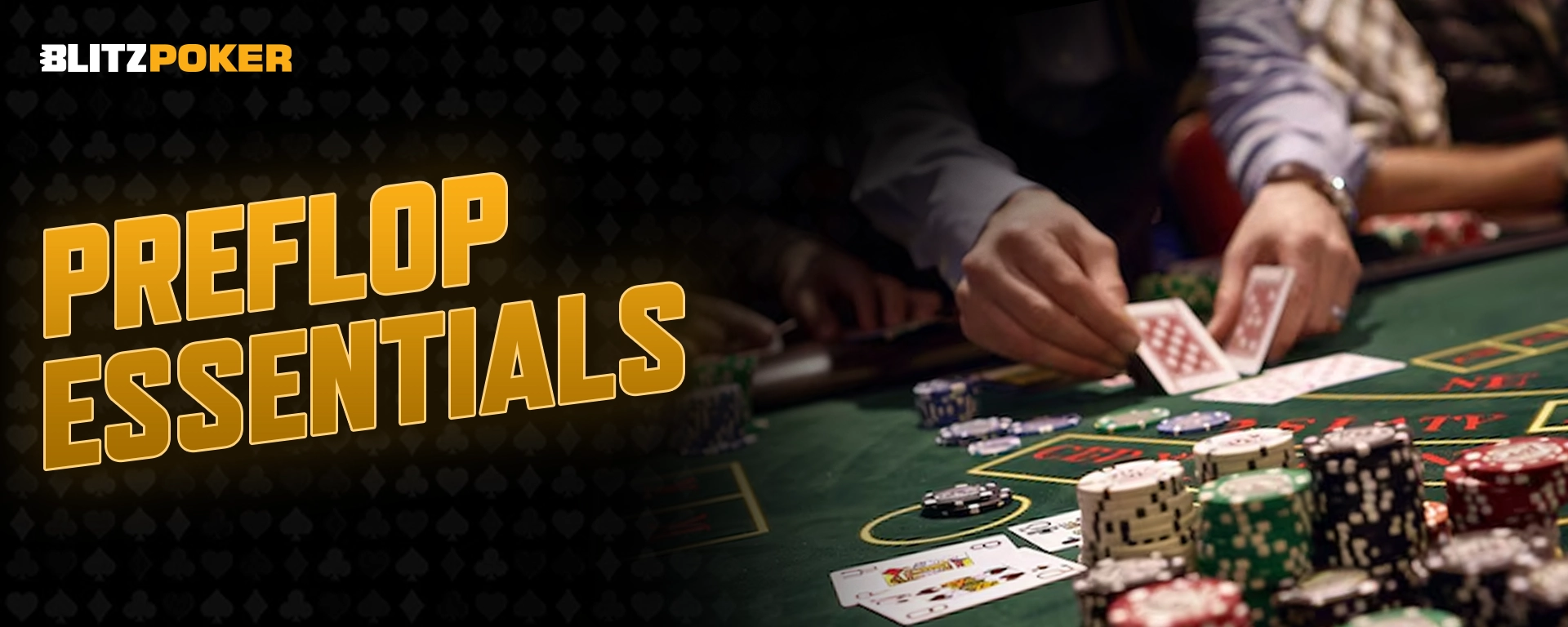Preflop Essentials
Can Big Blind Raise Pre Flop?
Yes, the Big Blind can raise pre-flop. When it’s the Big Blind’s turn to act, they are allowed to either check or raise the amount of the existing bet. If no one has raised the bet before the action reaches them, they can raise by putting in more chips than the big blind amount. This option gives the Big Blind a chance to take an aggressive stance if they have a strong hand.
Preflop Essentials: Can Small Blind Raise Pre Flop?
Yes, the Small Blind can also raise pre-flop. Similar to the Big Blind, the Small Blind has the option to call (matching the Big Blind) or raise when it’s their turn to act before the flop. Raising from the Small Blind position can sometimes be a strategic move since they have already invested chips into the pot.
Hands to Raise Pre Flop
The hands to raise pre-flop generally fall into certain categories:
Premium Hands
- Pocket Aces (AA)
- Pocket Kings (KK)
- Pocket Queens (QQ)
- Ace-King suited (AKs)
Strong Hands
- Pocket Jacks (JJ)
- Ace-Queen suited (AQs)
- Pocket Tens (TT)
- King-Queen suited (KQs)
Speculative Hands
- Ace-Jack suited (AJs)
- King-Jack suited (KJs)
- Suited connectors (like 76s, 87s)
- Low pocket pairs (like 22-99)
When deciding on hands to raise, players should consider their position at the table, the tendencies of their opponents, and their overall strategy.
How Much to Raise Preflop
The amount to raise pre-flop can depend on various factors, including table dynamics and stack sizes. However, a general rule of thumb is:
Standard Raise: A common raise size is between 2.5 to 3 times the big blind. For example, if the big blind amounts to $1, you might raise it to $2.50 or $3.
Aggressive Raise: In some situations, especially with tight players, a raise of 3.5 to 5 times the big blind may be appropriate to apply more pressure.
Effective Stack Sizes: If the stacks are deep, you might want to adjust your raise size. Smaller raises can be effective in deeper stack situations to maintain flexibility post-flop.
Bonus Preflop Essentials FAQs
What is the Preflop Phase?
The preflop phase is the first round of betting in Texas Hold’em. During this time, players get their hole cards before any community cards are shown. Players need to decide if they want to fold, call, or raise based on how strong their hand is and what’s happening at the table.
What Does it Mean to “Open Raise”?
An “open raise” is when a player makes a raise for the first time before the flop. This means they are the first player to add money to the pot during that round.
What Factors Should Influence My Preflop Decisions?
Several key factors can affect your preflop decisions. These include your position at the table, how strong your hand is, stack sizes, your opponents’ tendencies, and the overall dynamics at the table.
How Do I Adjust My Preflop Strategy Based on Position?
If you are in an early position, you should play tighter and choose your hands carefully. If you are in a late position, you can play a wider range of hands since you have more information about what other players are doing.
What is a “3-Bet”?
A “3-bet” is the 3rd bet that’s made during a betting round. If someone raises preflop (the first raise) and then another player reraises them, that’s called a 3-bet.
When Should I Consider Folding Aces or Kings Preflop?
Pocket Aces and Kings are very strong hands, but they can still be tricky. If there has been a lot of action before you, like multiple raises, you might think about folding if you suspect your opponents have strong hands.
What’s the Difference Between Calling and Raising Preflop?
Calling means you match the current bet without increasing it. Raising means you put in a higher amount than the current bet to pressure your opponents and possibly isolate them.
How Many Hands Should I Play Preflop?
The number of hands that you should play would depend on your playing style, the position, and the dynamics at the table. Generally, conservative players as per the preflop essentials may only play around 15-20% of hands, while more aggressive players might play a lot more.
What is the Importance of Table Image Preflop?
Your table image is how other players see you based on what you’ve done before. If players think you are tight, they may respect your raises. If they see you as loose, they might call your raises more often.
Should I Adjust My Preflop Strategy Based on Stack Size?
Absolutely! Stack sizes can significantly impact your preflop strategy. If you have a short stack, you may need to play more aggressively with strong hands. In contrast, if you have a deep stack, you can afford to be more speculative and flexible in playing postflop.
